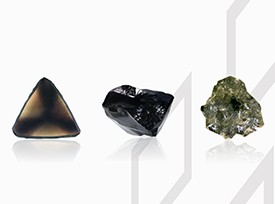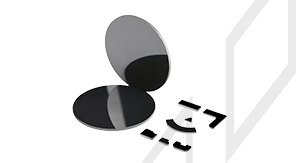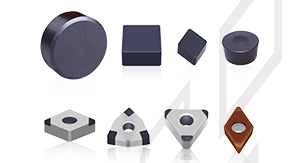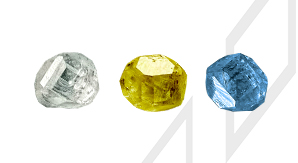With the continuous progress of high-efficiency grinding technology, the market demand for the performance of resin bond CBN grinding wheel is higher and higher, and there are more and more kinds of processing materials, which requires that resin bond CBN grinding wheel has applicability.
When CBN abrasive resin grinding wheel is grinding gray cast iron, CBN abrasive with suitable strength is recommended, because the microstructure of gray cast iron can be regarded as carbon steel matrix plus flake graphite. The mechanical properties of gray cast iron are related to the structure of the matrix and the morphology of graphite. The flake graphite in gray cast iron splits the matrix seriously, which is easy to cause stress concentration at the graphite sharp corner, so that the tensile strength, plasticity and toughness of gray cast iron are much lower than that of steel. Therefore, grinding low strength cast iron materials does not need too high strength CBN abrasive. In addition, the combination of CBN abrasives and resin bonds can not produce chemical bonding, and mainly rely on mechanical chimerism to increase the bonding force, so rough surface morphology and moderate strength of CBN abrasives resin grinding wheel are chosen to process gray cast iron.
High-speed steel is a kind of tool steel with high hardness, high wear resistance and high heat resistance. High-speed steel has good technological properties, good combination of strength and toughness, and very fine carbides are uniformly distributed on the matrix, which improves the service life. Therefore, the hardness value of high-speed steel is generally about HRC62-65. In high-speed steel processing, because it owns more hard grains, to choose good strength and good thermal stability of CBN abrasive and resin bond to form grinding wheel to process high-speed steel.
When CBN abrasive resin bond is grinding stainless steel, the debris of stainless steel has a certain adhesion to the grinding wheel, which is easy to block the pores and burn the workpiece. If the self-sharpening of the abrasive is not good, it is easy to fall off before honing, resulting in the grinding of the workpiece and ablation of the workpiece, leading to a decrease in grinding efficiency. When processing stainless steel viscous materials, it is necessary to choose CBN abrasives which are slightly less thermal shock and more fragile.
When resin bond grinding wheels made of different CBN abrasives are used to process nitride stainless steel, nitride stainless steel belongs to hard and tough materials, and the nitrided products have excellent wear resistance, fatigue resistance, corrosion resistance and high temperature resistance. After nitriding, the hardness of the workpiece surface is high, which will quickly wear off the CBN abrasive with a higher edge to prevent the edge from being pulled out, which requires the resin bond to have a very high holding force over the CBN abrasive. The selection of abrasives needs further research to solve the problem of difficult grinding of nitride stainless steel.
When the holding force of resin bond to abrasive is weak, the performance index of CBN abrasive does not determine the performance of the grinding wheel. Therefore, the quality of CBN abrasives can not be judged simply according to the strength data, but should be optimized according to the characteristics and morphology of abrasives, as well as the requirements of processing materials and processing conditions.
Under the working conditions of processing gray cast iron, high speed steel, stainless steel and nitride stainless steel, it is suggested that the CBN abrasive with rough morphology and medium static crushing load is the better choice.

CBN/DIA Superabrasive
Improve grinding efficiency to a new level
PCD Blank
Improve the comprehensive competition advantages of cutting tool manufacturer
PCBN Insert
Substantially improve cutting efficiency and tool life
HPHT Lab-grown Diamond
Protecting the environment and creating art and beauty with technology is the tireless pursuit of Funik